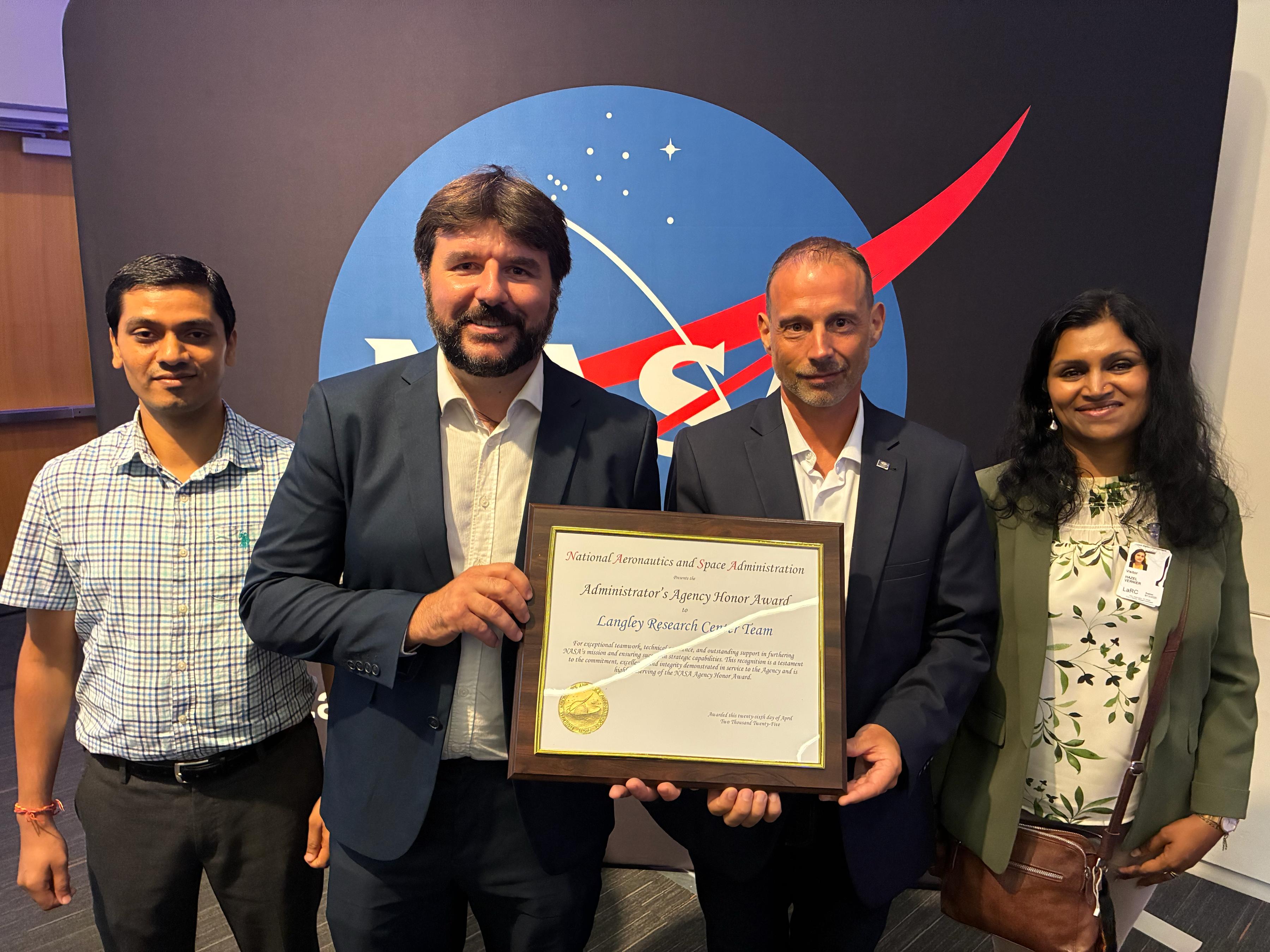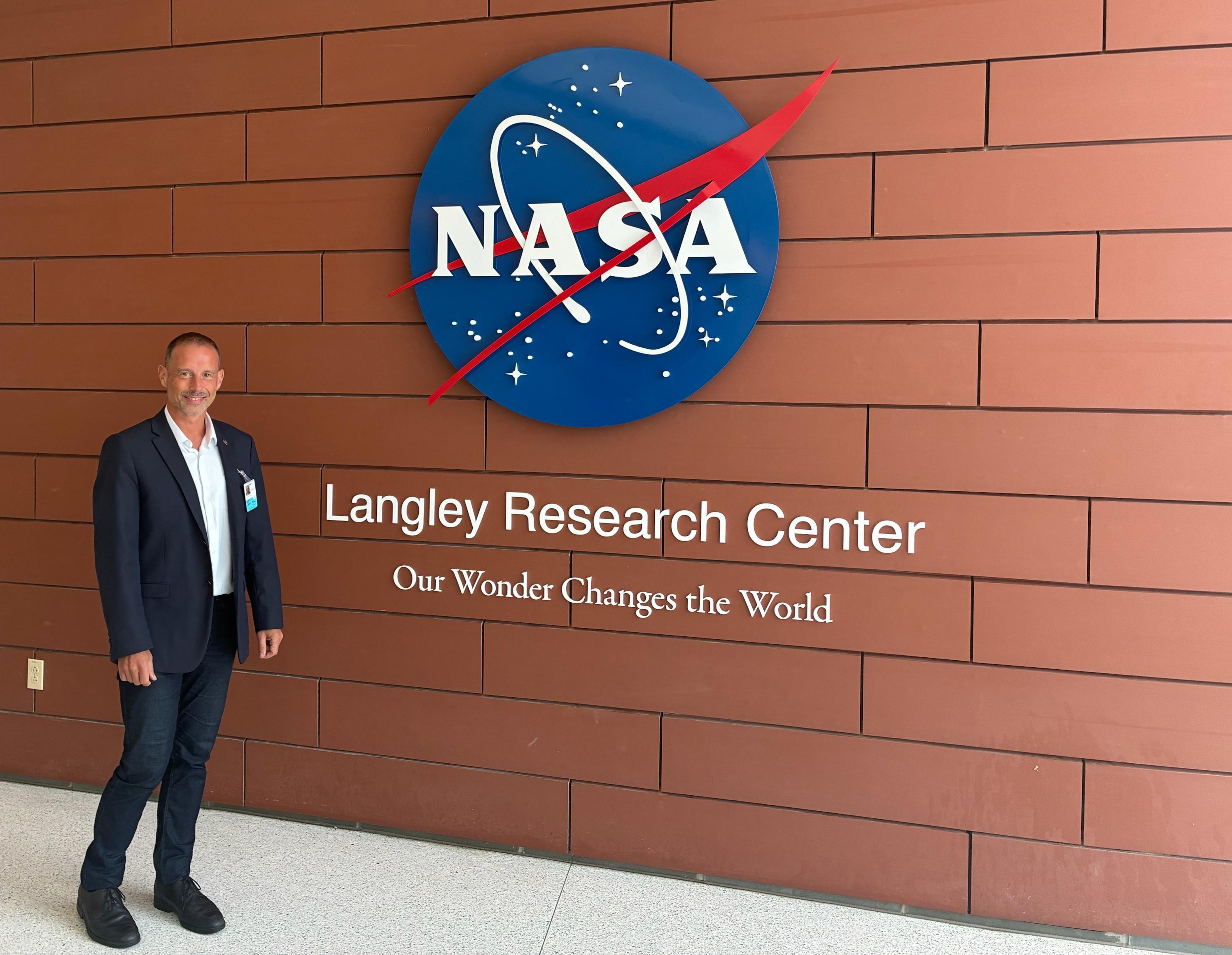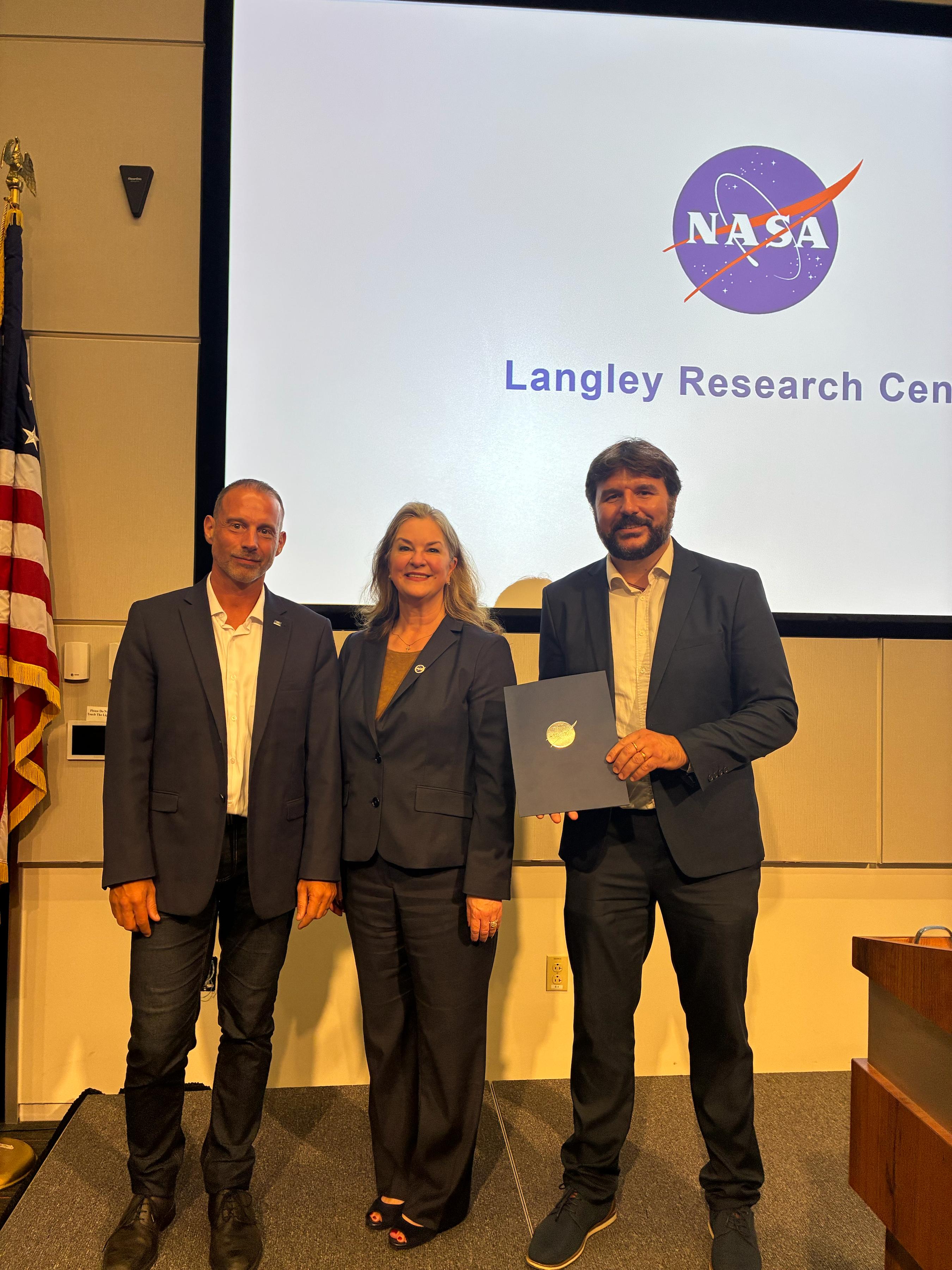URCA and AEROLAB Honored by NASA: International Recognition for Reims-Based Research
This distinction resonates well beyond our borders. On August 12, 2025, in Langley, Virginia (USA), NASA presented the AEROLAB research team from the University of Reims Champagne-Ardenne (URCA) with the prestigious Group Achievement Award, one of the “2024–2025 Agency Honor Awards.” This honor recognizes teams whose work has made an outstanding contribution to the mission of the U.S. space agency.
A scientific and collective achievement
Through this award, NASA celebrates the ingenuity and scientific rigor of the team led by Lilian Joly, lecturer-researcher at URCA. Their innovation? Transforming the heavy measurement instruments traditionally carried by stratospheric balloons into lightweight devices weighing only a few kilograms. Launched from the Moulin de la Housse site up to 35 km altitude, these balloons make it possible to measure greenhouse gases and aerosols—carbon, methane, water vapor—with high precision, at a low cost (around €500 per flight), and at a much higher frequency.
Since 2017, the team has launched more than 200 balloons and now operates a dedicated infrastructure, certified as a National Observation Service by the CNRS. This internationally recognized platform is also used to validate satellite data, such as from the French MicroCarb mission.
A long-term collaboration with NASA
Since 2022, AEROLAB has been part of a consortium bringing together NASA and the University of Orléans to study the impact of wildfires and volcanic eruptions on the climate. URCA has notably joined NASA’s BalNeO program, a global network monitoring atmospheric aerosols.
“Everyone was very happy—the president sent me a message to congratulate us, but I replied that we owed much of it to the university’s support. We received this award for two years of measurements, but I’ve been working nearly ten years to set this up. It’s the university’s investment and trust, particularly through Exebio, that made it possible,” emphasized Lilian Joly.
The Langley ceremony, attended by more than 600 people, was a major highlight. With the national anthem sung a cappella, a speech by NASA’s director, and a military parade, it was a true “American-style” celebration that the researcher from Reims will not soon forget. Beyond the award ceremony, his week-long stay allowed him to explore NASA’s campus, meet with laboratory leaders, and outline new collaborations.
Potential avenues include hosting master’s students for internships, setting up a joint Research/Training program, and even participating in projects related to the International Space Station (ISS).
Looking toward new horizons
The prospects are many. AEROLAB plans to take part in measurement campaigns in India during the monsoon, expand its work using drones to study new ecosystems (peatlands, industrial areas), and continue providing essential data to help understand and reduce greenhouse gas emissions.
Beyond institutional pride, this award embodies a vision: that of science which is open, collaborative, and focused on global challenges. It reinforces the position of URCA and its laboratories within the international scientific community and reminds us that collective innovation and knowledge-sharing are powerful drivers of progress and empowerment for all.


